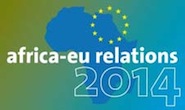++ SERIES: ECDPM ANALYSIS OF NEW EU DEVELOPMENT POLICY REFORM PROPOSALS ++ When it comes to violent conflict, the common mantra is that prevention is better (and cheaper) than cure. This is also illustrated by the findings of a recent evaluation of support to conflict prevention and peace building. In Georgia, for instance, the contracted amounts to be spent by the European Commission increased from €19 million in 2007 before the escalation of a conflict with Russia, to €72 million in 2008, the year of the clashes, and €116 in 2009 as a result of ...
++ SERIES: ECDPM ANALYSIS OF NEW EU DEVELOPMENT POLICY REFORM PROPOSALS ++ The Arab spring and recent evolutions in Europe’s development policy have focussed those concerned with EU external action on new EU buzzwords of “deep democracy” and “inclusive growth”. Yet other developments over the last 12 months provide somewhat of an indication of how the EU institutions plan to deal with longer-term approaches to conflict and fragility. This article outlines the EU’s approach and takes a closer look at the institutional setup and discusses findings of a recent evaluation. The challenge of dealing with ...
“Policies for Promoting The Private Sector’s Role in Development” was the subject for debate at a high-level roundtable event organised by the Development Policy Forum of Friends of Europe on November 8 in Brussels. ECDPM attended, given our interest and work in economic governance, and in particular in issues relating to business facilitation, taxation, trade facilitation and the Economic Partnership Agreements. The discussions raised some interesting issues and thoughts regarding the role of the private sector in development, but also highlighted the need for more clarity - and perhaps different terminology - when looking at ...
ECDPM is currently reflecting on the content and orientation of the next issue of its annual Challenges Inbrief. This publication is published at the start of each year, and aims to identify key issues for policy making for EU-Africa relations in the year ahead. The paper, in traditional ECDPM style, aims to be informative and ‘facilitating’, helping readers identify key debates and moments in EU development cooperation and external action. The writing process provides us with an opportunity to take a step back from our day to day work to look forward and to reflect ...

















